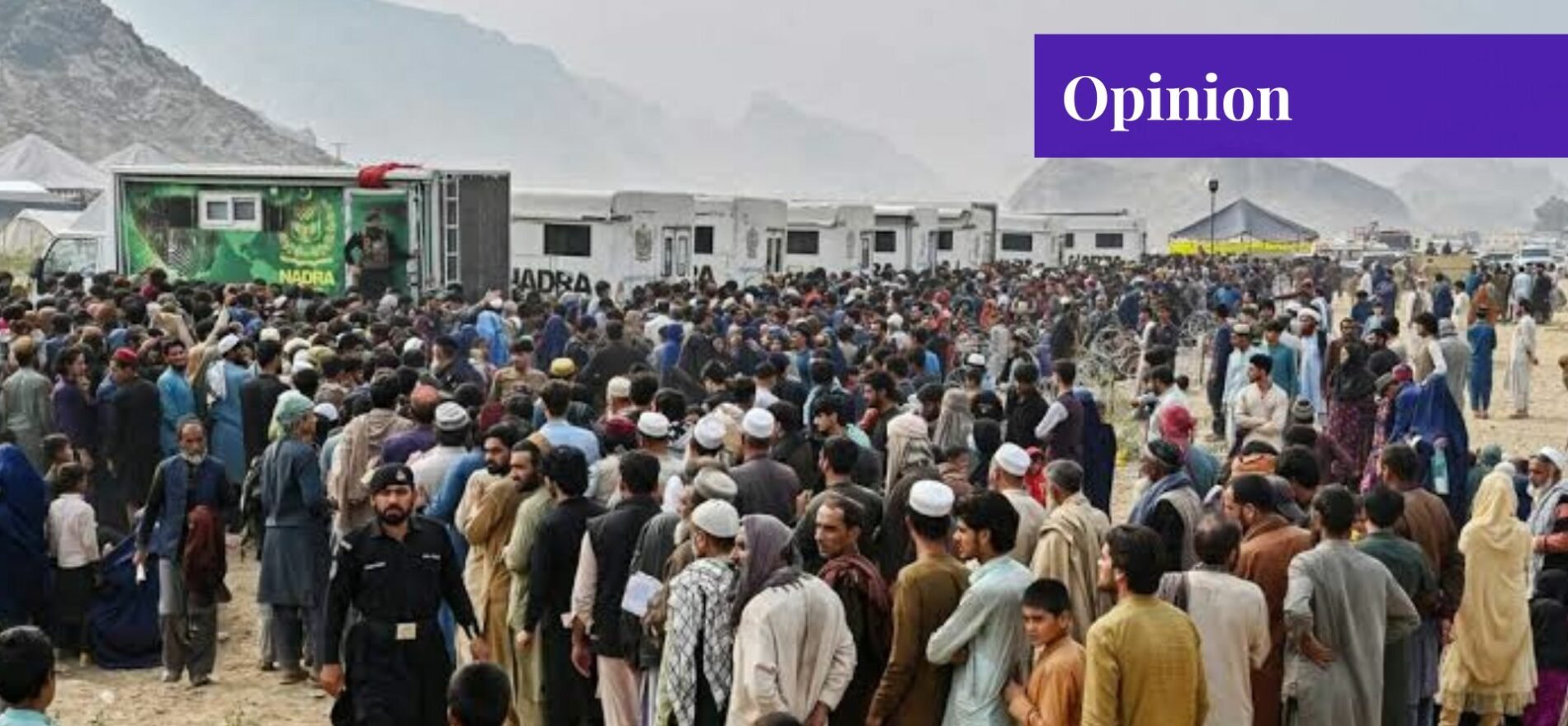Mr Muhammad Shahbaz Rajper is a freelance columnist from Sindh.
Introduction
For four decades, Pakistan has provided refuge to one of the largest populations of Afghan refugees worldwide, offering asylum to millions fleeing conflict, persecution, and instability back home. Pakistan was at first overwhelmed with Afghan immigrants during the Soviet-Afghan War in the ’80s, but it persisted through civil war and Taliban rule. Today’s turbulent political environment has made hosting these asylum-seekers challenging due to resource strain and infrastructure strain.
Pakistan recently implemented an aggressive crackdown against Afghan immigrants who lack appropriate documentation or legal status in Pakistan, setting an evacuation deadline of November 1 for these undocumented migrants to leave voluntarily before arrests and deportations take effect. This move is seen as responding to growing security risks posed by illegal migrants as well as economic and political factors influencing Pakistan.
A Security Risk
One of the primary drivers behind Pakistan’s crackdown against illegal Afghan immigration is perceived security risks. Pakistani authorities have noted cases in which Afghan refugees were accused of funding and supporting terrorist activities. Due to such fears, authorities see expelling undocumented migrants from its borders as a necessary measure against potential security threats.
Humanitarian Concerns
Pakistan’s crackdown, while motivated by security and political concerns, has created serious humanitarian concerns for Afghan immigrants living there for years—many have married and had children without ever visiting Afghanistan—thus jeopardizing their lives by moving them back home with no guarantees for stability or protection in a war-ravaged land. Pakistan must work toward finding alternative measures to support its residents residing here who face uncertainty due to being deported back.
Impact on Afghan Immigrants
Afghan immigrants in Pakistan who had moved voluntarily due to fear of deportation or arrest due to Pakistan’s crackdown have faced difficult decisions about their future. Key challenges facing Afghanistan include inadequate basic infrastructure, unemployment, and an economy struggling under Taliban control. Furthermore, immigrant Afghans fear returning home without adequate means of support—something further compounded by impending return.
International Response
Pakistan’s crackdown on illegal Afghan immigrants has raised serious concerns among international human rights organizations and global civil society. In particular, Amnesty International and various global groups have strongly denounced Pakistan’s eviction plan, alleging it puts vulnerable groups like Hazaras at risk.
Challenges in Addressing the Issue
Addressing undocumented Afghan immigration to Pakistan can present multiple difficulties that require an integrated and balanced strategy for its resolution. Greater collaboration must occur among Pakistan, Afghanistan, and international stakeholders in tackling its root causes, which include security threats and economic instability as underlying sources.
Future Implications
Domestically, Pakistan faces the daunting task of managing the return of refugees who lack access to basic amenities in Afghanistan and require repatriation. It has the duty to ensure safe and dignified repatriation for these Afghan immigrants who could otherwise face discrimination or exclusion.
Internationally, Pakistan’s actions could wreak havoc on Afghanistan and global stakeholders. Forcible deportation of Afghan refugees could strain relations between Afghanistan and Pakistan and lead to them monitoring each other closely with regard to human rights protection and refugee care issues. The international community will certainly also closely track Pakistan’s response.
Conclusion
Pakistan’s crackdown on illegal Afghan immigrants represents an intricate, multidimensional issue driven by security considerations, changing geopolitical dynamics, and economic hardship in Afghanistan. While Pakistan’s actions seek to address immediate challenges, they also raise humanitarian and political worries that have long-term ramifications such as managing the returns of refugees to Afghanistan while upholding diplomatic relations and human rights standards.
Ultimately, an integrative collaborative strategy is required in order to effectively tackle its root causes while upholding Pakistani security interests and guaranteeing Afghan immigrants’ well-being simultaneously.
If you want to submit your articles, research papers, and book reviews, please check the Submissions page.
The views and opinions expressed in this article/paper are the author’s own and do not necessarily reflect the editorial position of Paradigm Shift.



















